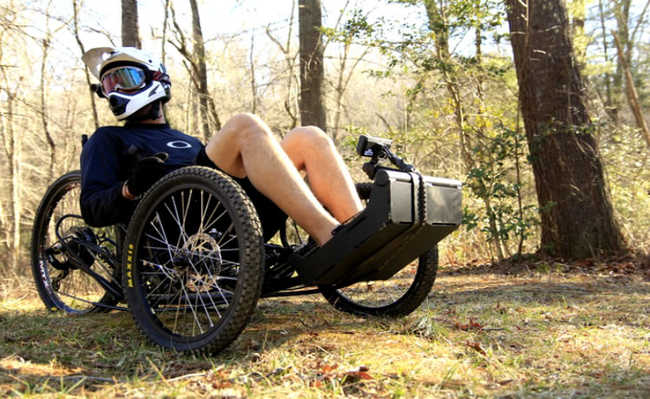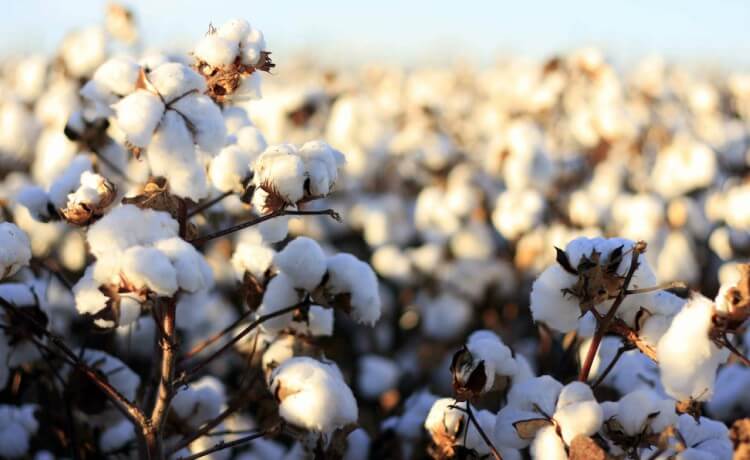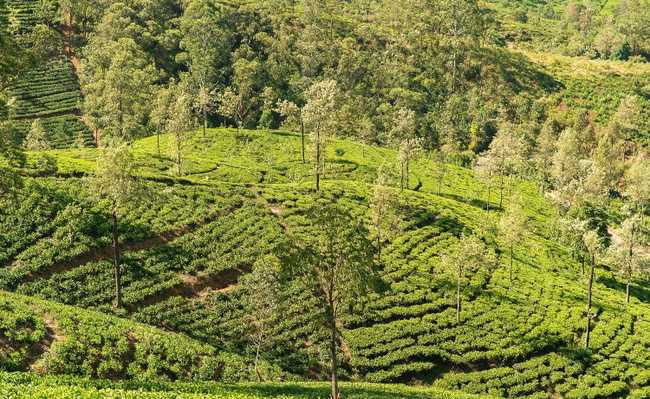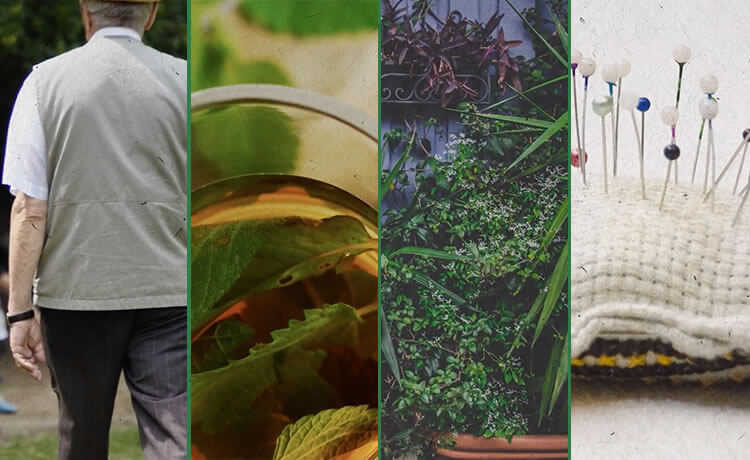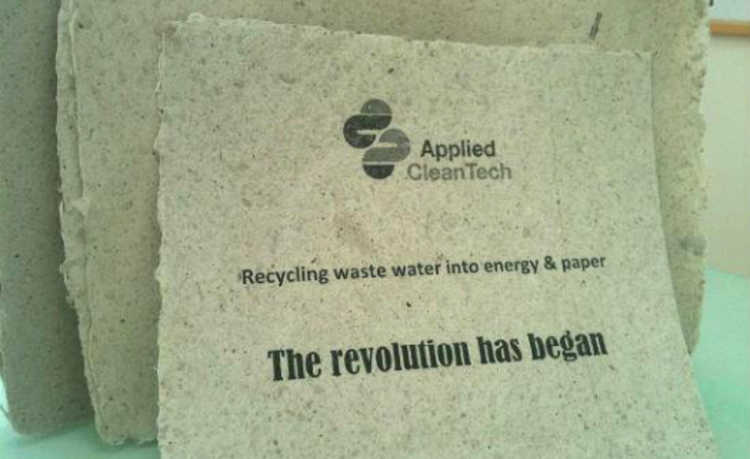How to choose the best type of domestic composter?
Learn how to choose the best types of compost for your home or apartment
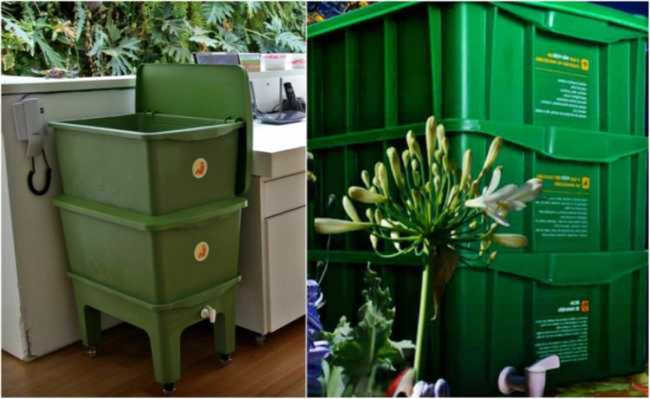
Domestic composting is one of the most viable and adequate solutions to the problem of solid waste in big cities. The process consists of "digesting" the organic matter through processes with or without the presence of oxygen and its final product is humus, which can be used as a natural fertilizer.
- Humus: what it is and what are its functions for the soil
The biggest question for those who are starting to make compost is how to find the best type of composter or types of compost best suited to a given situation. In order to acquire the correct model for your house or apartment, it is important to consider some important variables. They are: the type of compost chosen, the environment you have for composting and the type and volume of waste that will be decomposed, according to the number of people living in the residence.
There are two types of compost: vermicompost and dry compost. In the first mode, the process is carried out through the action of earthworms in the system to help microorganisms already present in the soil to decompose organic matter. In dry composting, only the micro-organisms present in the soil decompose without any external help. The main difference between the two types of compost is the decomposition time (the process that relies on the use of worms is faster).
- Earthworm: environmental importance in nature and at home
In addition to the type of compost, it is necessary to analyze the space that will be made available. If you have an open place with a flower bed, for example, and you like to deal with plants and soil, an option for your project is floor compost (a type of dry compost). In it, a pile of organic waste and dry matter is made, with the proportions of one organic part to two parts of dry matter.
apartment x house
If you live in an apartment or even a house, but do not have open spaces or a lot of time, manual or automatic dry composting or vermicomposting made with containers are the best options. The main difference between the manual and automatic dry composter is that the latter carries out the entire process of turning the compost automatically and degrades the residue within 24 hours.Vermicompost

The vast majority of compost bins of this type of compost are made up of three or more stacked plastic boxes, the top two of which are digester boxes, where waste is composted, and the last box is a slurry collector and has a tap for removal. In addition to lids and adhesives, there are approximately 250 red California earthworms and substrates in the earthworm farm.
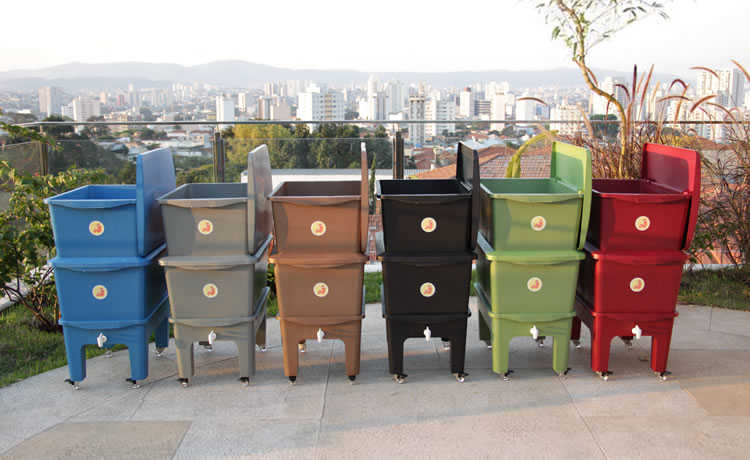
Vermicomposting or earthworm is recommended for people who live in apartments and houses. And for that there are variations in the size of the composter.
The total degradation of organic matter takes place within two to three months. Regarding the generation of liquid waste (the famous slurry) which, in the composting process, can be used as a natural liquid fertilizer, vermicomposting is easy to handle, since, in the last compartment, all the liquid is stored and, accordingly with the amount, it can be removed via the tap.dry compost

For those who don't like having worms at home, another option is dry compost. Her secret is how you will use to stir the mixture and thus provide oxygen for the process. The production of fertilizer takes a little longer, because only the microorganisms present in the soil (fungi and bacteria) will be responsible for the decomposition of organic matter. It is possible to compost dry in a specific container or on the ground itself. In the first week, it is recommended that you stir the mixture well every day, after which the frequency can be changed to once a month.
In dry composting, the liquid waste (biofertilizer) is stored together with the compost, leaving it more humid than the compost generated with the help of earthworms.
It is recommended for people who live in condominiums and communities, in which a high number of people consume waste every day and in large quantities, because the dry compost is large and resists several liters of waste.
Both types of composters should be chosen based on the number of people living in your household and the types of waste that will be discarded. There are some restrictions regarding what can or cannot be used for decomposition in composters, since, depending on what is inserted, the quality of the fertilizer at the end of the process can be changed.
If you are just starting to compost, enter our store and see the composter that best suits your needs.



